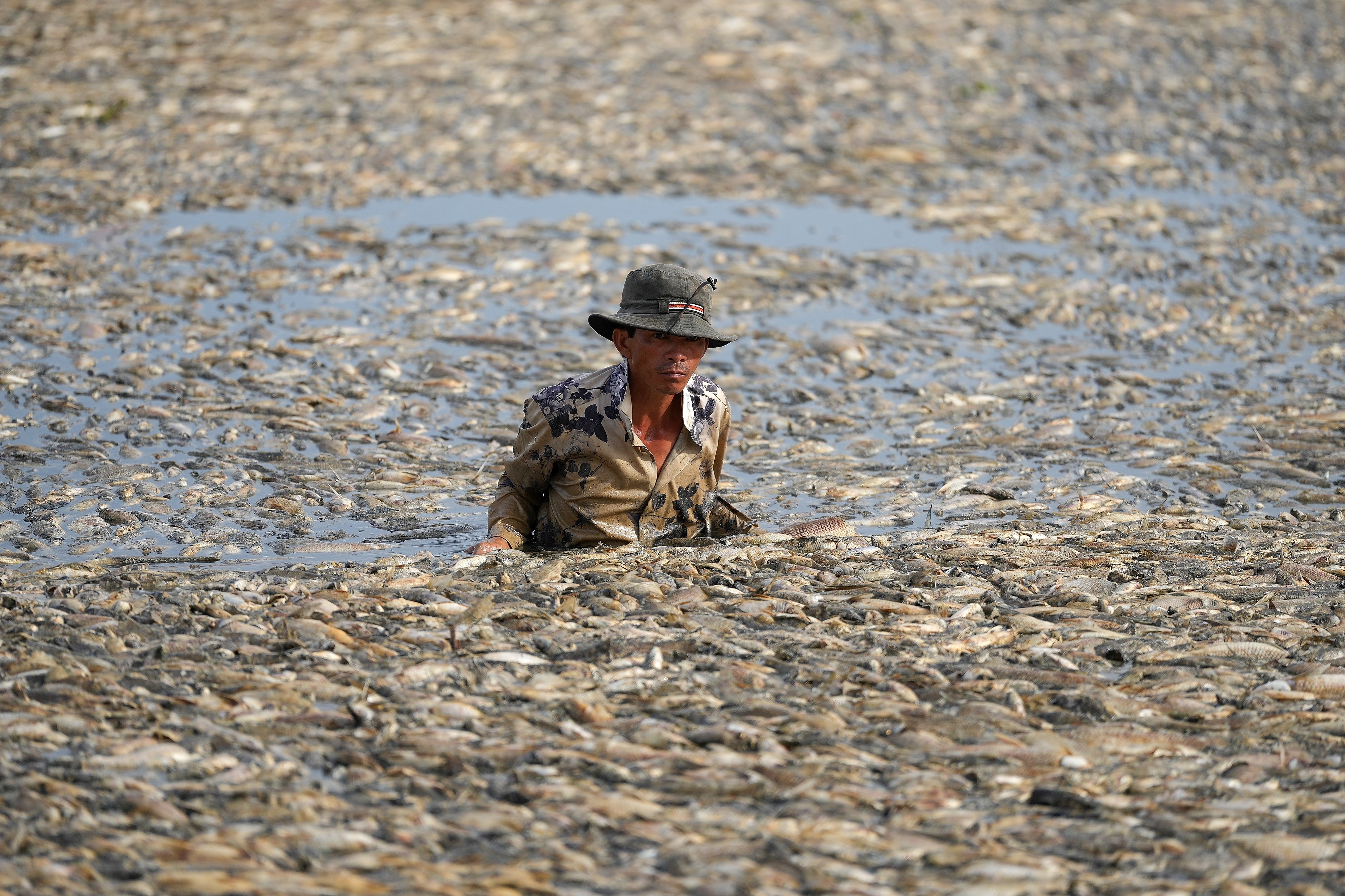Hundreds of thousands of fish die in Vietnam as Asia swelters in searing heat
Residents say smell from reservoir after mass die-off of fish has been overwhelming
Your support helps us to tell the story
This election is still a dead heat, according to most polls. In a fight with such wafer-thin margins, we need reporters on the ground talking to the people Trump and Harris are courting. Your support allows us to keep sending journalists to the story.
The Independent is trusted by 27 million Americans from across the entire political spectrum every month. Unlike many other quality news outlets, we choose not to lock you out of our reporting and analysis with paywalls. But quality journalism must still be paid for.
Help us keep bring these critical stories to light. Your support makes all the difference.
Hundreds of thousands of fish have died in a reservoir in Vietnam due to dwindling water levels amid a searing heatwave in the region that has broken records and shut down schools.
The dead fish blanketed the entire view of the 300-hectare Song May reservoir in Dong Nai province this week with barely any water visible.
At least 200 tonnes of fish may have perished in the last few days, local media reported.
The region has been grappling with intense heat, much like the rest of Southeast and South Asia, with no rainfall in weeks.
Local media reports blamed the searing temperatures and mismanagement of the dam for the mass die off.
The water levels in the reservoir had been going down in recent weeks. Reservoir management discharged water to try to save crops downstream earlier but their efforts were in vain.
The firm in charge of managing the lake started dredging in early 2024, planning to release extra water into the reservoir for the fish and to clear sediment and debris.
However, as temperatures continued to soar, the company decided to release the water that had been dredged from the reservoir into the downstream area instead of returning it to the reservoir, leading to the water level going down, according to the Tuoi Tre newspaper.
“As a result, fish died en masse,” the newspaper reported.
Residents say the smell from the reservoir after the mass die-off has been overwhelming.
“Our life has been turned upside down over the past 10 days because of the smell,” a local resident in Trang Bom district, who identified himself only as Nghia, told AFP.
Pictures depict the grim aftermath, with residents navigating through the reservoir’s murky waters amidst a sea of dead fish.

In Dong Nai province alone, temperatures soared to a blistering 40C, breaking records set over two decades ago.
Southeast and South Asian nations are going through a “historic” heatwave with scorching conditions prompting emergency measures across the region.
“Thousands of records are being brutalized all over Asia, which is by far the most extreme event in world climatic history,” weather historian Maximiliano Herrera wrote on X.
Neighbouring Cambodia grappled with similar challenges as temperatures threaten to reach a staggering 43C, prompting prime minister Hun Manet to order precautionary measures, including potential school closures and water shortage contingency plans.
In Thailand, the situation is no less dire, with electricity usage surging to unprecedented levels as temperatures in Udon Thani province skyrocketed to over 44C.
In the Philippines, the remains of a 300-year-old ancient town which was submerged under water have been visible for days as water levels went down in a dam.
The scorching conditions have forced authorities to implement measures to safeguard public health, including adjusting school schedules to minimise exposure to the sweltering midday heat. The Philippines has moved schools online while Bangladesh has shut down classes.
Meanwhile, in India, at least nine deaths have been reported due to suspected heat strokes amid the ongoing national elections.
International organisations warned 2024 could be brutally hot and break the record of last year which has been hottest on record so far.

Join our commenting forum
Join thought-provoking conversations, follow other Independent readers and see their replies
Comments